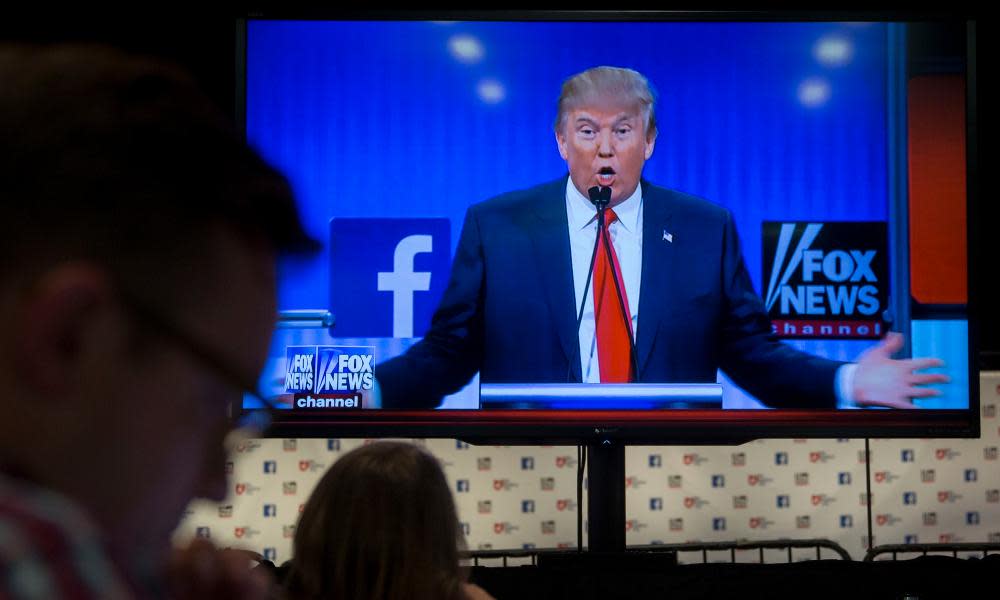The tide is starting to turn against the world’s digital giants | John Naughton

In his wonderful book The Swerve: How the Renaissance Began, the literary historian Stephen Greenblatt traces the origins of the Renaissance back to the rediscovery of a 2,000-year-old poem by Lucretius, De Rerum Natura (On the Nature of Things). The book is a riveting explanation of how a huge cultural shift can ultimately spring from faint stirrings in the undergrowth.
Professor Greenblatt is probably not interested in the giant corporations that now dominate our world, but I am, and in the spirit of The Swerve I’ve been looking for signs that big changes might be on the way. You don’t have to dig very deep to find them.
Some are pretty obvious. In 2014, for example, the European Court of Justice decided that EU citizens had the so-called “right to be forgotten” and that Google would have to comply if it wanted to continue to do business in Europe. In May this year, the European commission fined Facebook €110m for “providing misleading information” about its takeover of WhatsApp. And in June the commission levied a whopping €2.4bn fine on Google for abusing its monopoly in search.
These companies have inadvertently acquired the ability to shape our politics
Since the European commission is the only regulator in the world that seems to have the muscle and inclination to take on the internet giants, these developments were relatively predictable. What’s more interesting are various straws in the wind that show how digital behemoths are losing their shine. Many of these relate to Brexit and the election of Donald Trump, and to the dawning of a realisation that Google and Facebook in particular may have played some role in these political earthquakes.
This was not because the leadership of the two companies actively sought these outcomes, but because people began to realise that the infrastructure they had built for their core business of extracting users’ data and selling it to companies for ad-targeting purposes could be – and was – “weaponised” by political actors in order to achieve political goals.
Public concern about these discoveries was not exactly mollified by the responses of the companies’ bosses – which were variously dismissive, evasive (“it’s just the algorithms – nothing to do with us”), disingenuous, inept and politically naive. They had to be like that, because a franker response would reveal that taking responsibility for what happens on their platforms would vaporise the business model that has made them so rich and powerful.
The tech industry, wrote Buzzfeed’s editor-in-chief, Ben Smith, in a perceptive recent essay, “has had a remarkable run. The companies at its centre are beloved by consumers, truly global, dominant in the markets. They have also been able to coast on their popularity and their amazing products while largely getting a pass on politics at its higher levels.”
Suddenly, though, the wind is changing. The companies, says Smith, have “never had to fight for their identity against political tides that have defined other major American industries. It’s easy to forget that oil prospectors and junk bond traders had their moments of glory too; now Wall Street and the oil industries are resigned to a defensive crouch.”
What we’ve come to understand over the last two years is that, to coin a slogan, the technical is political. When Facebook’s CEO, Mark Zuckerberg, famously exhorted his software engineers to “move fast and break things” he didn’t realise that one of the things that might get broken was democracy. And when Google’s search team added autocomplete as a way of helping users formulate search queries, they didn’t realise that the resulting algorithms could be gamed by Holocaust deniers.
The tech giants may not have set out to acquire political power, but it turns out that they have inadvertently acquired the ability to shape our politics. This is akin to, but also different from, the power that Rupert Murdoch has. And with it come responsibilities that the tech moguls are as desperate as Murdoch to avoid shouldering.
At the moment they shelter behind a clause in the 1996 Communications Decency Act that absolves them from responsibility for what passes through their servers. For two decades, that was the end of the matter. But suddenly that bulwark is beginning to look fragile as US lawmakers unite to chip away at it. In 2014, Ben Smith wrote a piece entitled The Facebook Election, in which he predicted that the social network would “replace television advertising as the place where American elections are fought and won”. Looks like he was right: the technical has indeed become political.

 Yahoo News
Yahoo News 
